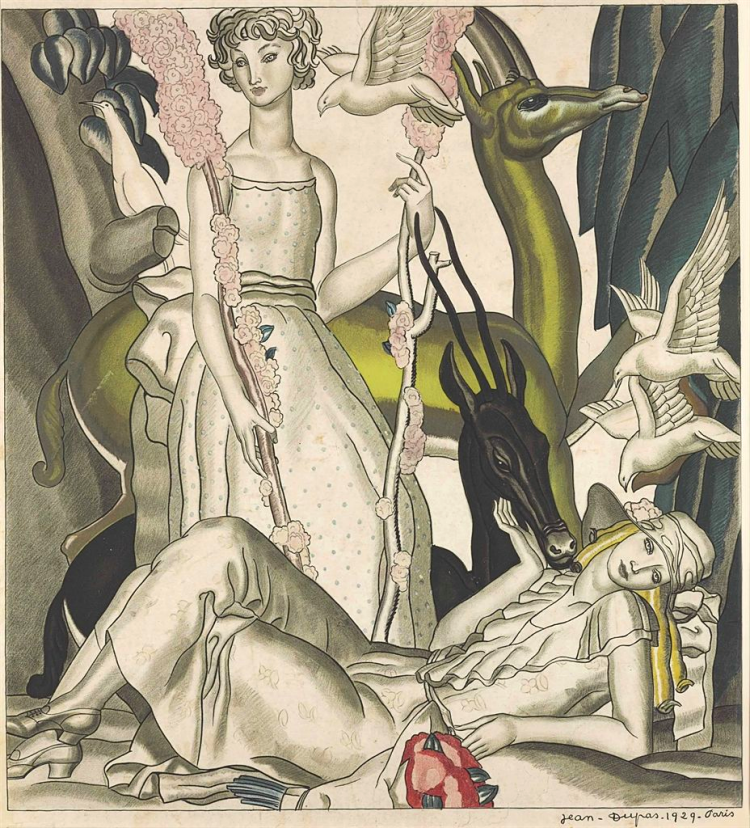 |
Les Perruches, circa 1924-25, probably his best known painting.
|
 |
A study or vignette taken from the composition of Les Perruches.
|
 |
A study for the above work.
|
 |
Le Printemps, 1926.
|
 |
A study for the above work.
|
 |
Portrait of a young boy.
|
 |
| La Femme à L'Ara, 1921. |
 |
Another study or vignette taken from the composition of Les Perruches.
|
 |
Portrait of a woman, study for "Sylvie."
|
*
Jean Théodore Dupas (21 February 1882, Bordeaux - 8 September 1964, Paris), French painter, graphic designer, poster artist, fashion illustrator, and decorator whose work is seen by many as the embodiment of French Art Deco painting and graphic design. The son of a merchant marine captain, he began his adult life as a merchant seaman, himself. But he later enrolled in art school, first in Bordeaux and then in Paris, and in 1910 he won the prestigious
Prix de Rome for painting and went to study at the French Academy in Rome. From there he sent several paintings to be exhibited at the
Salon in Paris, but his studies were interrupted by the war. He first came to public prominence during of the famous
Exposition internationale des arts décoratifs et industriels modernes, the world's fair held in Paris in 1925, where his paintings were featured, notably in one of the French pavilions, the
Hôtel d'un Collectionneur, a collaboration of furniture designer Jacques-Émile Ruhlmann and other leading designers and craftsmen of the day. (The
style moderne that the French government was celebrating with the exposition later became known as "Art Deco", taken from the fair's name.) From the late Twenties and continuing into the Thirties his work was seen everywhere and he was awarded many prestigious commissions. His most important were those completed for the ocean liners the SS Île de France, whose maiden voyage was made in 1927, and the legendary SS Normandie, which entered service in 1935; among other things, he designed the more than four hundred square meters of painted and frosted glass that decorated the grand salon of the Normandie, one entire corner of which is preserved at the Metropolitan Museum of Art. In 1940 he was named curator of the
Musée Marmottan in Paris, and the following year was admitted to the
Académie des Beaux-Arts and was appointed a professor of painting at the
Ecole des Beaux-Arts. He ended his career as the director of the
Musée Marmottan before his death at the age of eighty-two.











































No comments:
Post a Comment